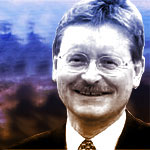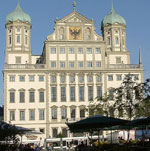
Dr Paul Wengert, Mayor of Augsburg

FRONT PAGE
About us

The 2010 results
The 2010 project
The 2010 finalists
Code of Ethics
The World Mayor Prize

The 2008 results
The 2008 project
The 2008 finalists
The World Mayor Award

The 2006 results
Methodology
The 2006 finalists
The World Mayor Award
Dora Bakoyannis congratulates John So
With Mayor of Amsterdam
With Mayor of Harrisburg
With Mayor of Melbourne
With Mayor of St Etienne

Mayor of Amsterdam
Mayor of Antananarivo
Mayor of Augsburg
Mayor of Denver
Mayor of Dubrovnik
Mayor of Harrisburg
Mayor of Makati City
Mayor of Melbourne
Mayor of St Etienne
Mayor of Valencia

On Mayor of Amsterdam
On Mayor of Antananarivo
On Mayor of Augsburg
On Mayor of Bangalore
On Mayor of Belo Horizonte
On Mayor of Denver
On Mayor of Dubrovnik
On Mayor of Harrisburg
On Mayor of Houston
On Mayor of Istanbul
On Mayor of Makati City
On Mayor of Melbourne
On Mayor of Mulhouse
On Mayor of New Orleans
On Mayor of New York
On Mayor of Phnom Penh
On Mayor of Sofia
On Mayor of St Etienne
On Mayor of Taipei
On Mayor of Toronto
On Mayor of Valencia (VE)

By Mayor of Amsterdam
By Mayor of Augsburg
By Mayor of Belo Horizonte
By Mayor of Dubrovnik
By Mayor of Makati City
By Mayor of Melbourne
By Mayor of Valencia

The 2005 results
Contest methodology
List of finalists
Winning mayors write
Mayor Rama writes - Mayor Bakoyannis replies

The 2004 contest
List of all 2004 finalists
Edi Rama wins 2004 award
People ask - Edi Rama replies

Front Page
Site Search
About City Mayors
Dr Paul Wengert
Mayor of Augsburg, Germany
More than any other, Augsburg’s Mayor Paul Wengert has one guiding principle by which he lives: “Develop the city with the citizens”. The city belongs to the citizens, says Mayor Wengert, and for that reason, they have to be included in the development of their immediate living space. In 2006, Paul Wengert was included among the top ten mayors in the annual World Mayor project.
The strengthening of civic commitment and reinforcement of the sense of responsibility for the community are two objectives, but also simultaneously prerequisites that make the integration and peaceful cohabitation of the various cultures and generations and the lasting development of the city possible in the first place.
Since taking office in 2002, Mayor Wengert has been hard at work for the “Citizens’ City”. In addition, the “Augsburg Alliance” was founded in 2003, which organised extensive aid in 2005 for the victims of the Asian tsunami catastrophe. Thanks to the dedication and activities of its citizens, Augsburg was the first city in the world to deliver aid to the devastated region, and it continues to do so today on a permanent basis.
The 53-year old politician and attorney has been a member of Germany’s Social Democratic Party (SPD) since 1972. Following high school and military service, he studied law, economics and theology, and in 1979 he completed his first bar exam with honours. After receiving his doctorate and the successful completion of his second bar exam, Mayor Wengert went on to work for eight years as a judge and District Attorney.
From 1990 to 2002, he was the Mayor of Füssen, located at the foot of the world-famous Neuschwanstein Castle. In 2002, Mayor Wengert was elected Mayor of Augsburg, Bavaria’s third-largest city with a population of 270,000, and the second-oldest city in Germany, with a history stretching back over 2,000 years.
Since taking office in Augsburg, he has been successful in achieving his most important aims in the politics of the city. These consist on the one hand of the advancement of education and culture, civic commitment and maintaining social harmony in his city, home to a population made up of people from 120 nations. Simultaneously, his other primary focus has been the promotion of modern industry and securing the jobs associated with it, with particular emphasis on mechanical engineering, aeronautics and astronautics, environmental technology, IT and communications technologies.
To this end, in 2005 Mayor Wengert initiated the “Augsburg Alliance for Jobs”, in which the highest representatives of the chambers of commerce and the unions work together with him on developing specific measures for safeguarding and creating job and vocational training opportunities.
He also pays special attention to the universities and research institutions in his city. Since 2002, Mayor Wengert has governed with a majority in the City Council consisting of the SPD, the Greens, the “ÖDP” (Ecological Democratic Party) and the “Freie Bürger Union” (Free Citizens Union) – a centre-left coalition in a German federal state governed for decades by a markedly more conservative majority of the Christian Social Union (CSU).
Mayor Wengert is a member of the European Congress of Regional and Local Authorities, the Steering Committee and the Legal and Constitutional Committee of the German Association of Cities and Towns, and the Management Board of the Bavarian Association of Cities and Towns. In addition, he is a member of the worldwide organisation, Mayors for Peace.
It was from among the citizens in the “Augsburg Alliance” that aid for the victims of the tsunami emanated, with an Augsburg-based action group consisting of some 35 organisations, bodies and initiatives. One of the project groups from Augsburg is working closely with the authorities in Banda Aceh on developing the infrastructure of a local administration.
Donations of some 200,000 Euros have been made, gathered as a result of various collection and donation campaigns undertaken by local residents. The money has been transferred through the Indonesian equivalent of the Cities and Towns Association, and applied in a goal-oriented, sustainable manner. This has included donations to date of 30,000 Euros to the children’s aid organisation, PLAN, for educational projects. Additionally, 22,000 Euros have gone to the complete reconstruction of one hall, The Fire Department received 3,000 Euros, 1,000 Euros was allocated to supporting a student scholarship campaign and 15,000 Euros went to the reconstruction of an orphanage in Sri Lanka.
“This form of aid is not interfering. Instead, it demonstrates great sympathy on the part of Augsburg’s citizens for the well-being of the residents of Indonesia, and it is being implemented in close cooperation with the City Council in Banda Aceh“, stresses the Mayor. Citizens are taking responsibility for other citizens – regardless of whether they are in Augsburg or elsewhere in the world.
This sense of responsibility must nevertheless be actively aroused and promoted. In light of the problems additionally posed by globalisation for cohabitation in the communities, EU integration, social and societal changes and the increasing disillusionment of the general public with politics, for Mayor Wengert it is of crucial importance to speak directly to the citizens, to include them and work with them to prepare the city for the future.
His view of politics is not that of a self-serving end unto itself or a mandate to rule. Instead, elected officials are there to shape the environment the people live in conscientiously on behalf of all the citizens. And where better can the citizens themselves be directly included in this development if not locally? Civic participation is not a tiresome duty for Augsburg’s Mayor, but rather the guiding principle for his political activity in the community. Decisions are not only directed towards the needs of the citizens, but also prepared and discussed together with them in a collaborative process. The platform for this is provided by the “Augsburg Alliance”, initiated by Mayor Wengert.
Integration is made possible in the first place by the civic commitment of local citizens and their acceptance of individual responsibility for their city and the people who live in it. The objective is the creation of a climate of mutual respect, open-mindedness, tolerance, acceptance and an attitude of openness toward the world.
Creating the environment together means, above all, shaping a city’s social interaction in a sustainable and peaceful manner. A rapidly “aging society” on the one hand, and growing social permeability on the other, combined with an increasing cultural and religious diversity in the population, demand that a city’s society is capable of integration. The integration challenges involved are diverse, not only affecting the integration of immigrants with their cultures and religions, but also that of the different generations, social classes or sexes.

Augsburg City Hall, built between 1615 and 1620
Short history
of Augsburg
Augsburg is one of the oldest cities in Germany. The city was founded under the reign of the Roman Emperor Augustus as early as 15 BC and was a Roman provincial capital for well over 400 years.
The free imperial city of Augsburg had its heyday in the 15th and 16th centuries, largely as a result of trade built up by its wealthy merchant families, notably the Fugger and Welser families. At that time, Augsburg was among the leading metropolitan cities in the world.
Even today, the historical Old Town reflects and represents those glorious times. Sites of particular interest include the palaces along the historic Maximilianstraße, the Schaezler Palace with its famous Rococo Banquet Hall, the Renaissance Town Hall, with its Golden Hall built by the municipal architect Elias Holl, the magnificent churches as well as the "Fuggerei", the world's oldest social housing settlement for the poor - where, even today, the annual rent for a flat amounts to just 0.88 Euro.
After the Thirty Years War, the artistic skills of goldsmiths, silversmiths and printers flourished, and much of their work can still be seen in the city’s famous museums.
The city of Augsburg has two memorials, the Mozart House and the Bert-Brecht House. Mozart’s father, Leopold, was born on 14 November 1719 in the Mozart House (Frauentorstrasse 30). The newly decorated Mozart House displays paintings, engravings and artwork related to the Swabian Mozart family, Leopold and Wolfgang Amadeus, and the travels of the Mozarts throughout Europe, as well as original instruments of that period. The nearby “Small Golden Hall” serves as a reminder of the school which Leopold Mozart attended.
Today Augsburg, with its poulation of 265,000, is a modern industrial centre and one of the most important economic and commercial locations in the Free State of Bavaria. Enterprises of world renown that develop state-of-the-art computer technology and electronics are headquartered in the city. Parts of the European space rocket ARIANE as well as of the European Airbus are being manufactured in Augsburg, and part of this manufacturing process is carried out by robots which, in turn, were developed in Augsburg.
It was in Augsburg that the diesel engine, developed by Rudolf Diesel, was "taught to run". It can still be seen and admired in the MAN museum. An environmental competence centre has been founded in order to set the right course for gaining pan-European importance in the fields of power engineering and environmental technology.
Augsburg is always worth a visit, particularly for its recreation and
leisure facilities. Spacious public gardens and idyllic parks invite the visitor to stroll, cycle, or simply relax. Augsburg has much to offer in terms of sport and leisure as well as sight-seeing, especially in the beautiful rural districts where great store is still set by Bavarian traditions. The moated castle in Unterwittelsbach was once owned by the Bavarian Duke Maximilian Joseph, father of Elizabeth, the world famous Empress of Austria.
Furthermore, Augsburg is the centre of the "Romantic Road". It has entered into town partnerships with Nagahama and Amagasaki in Japan, with Dayton in the United States and with Bourges in France, Liberec in Czechia, Jinan in China and Inverness, Scotland.
Famous medieval towns are within easy reach, including the fairy tale castle of King Ludwig II of Bavaria. Thanks to its ideal road and rail connections, Augsburg can be reached quickly from all major German cities.
Accommodation in Augsburg encompasses everything from luxury hotels to simple guest-houses. The city’s restaurants include many that offering international cuisine. Restaurants range from top class to the more simple traditional places offering Swabian cooking with all its typical specialities.
